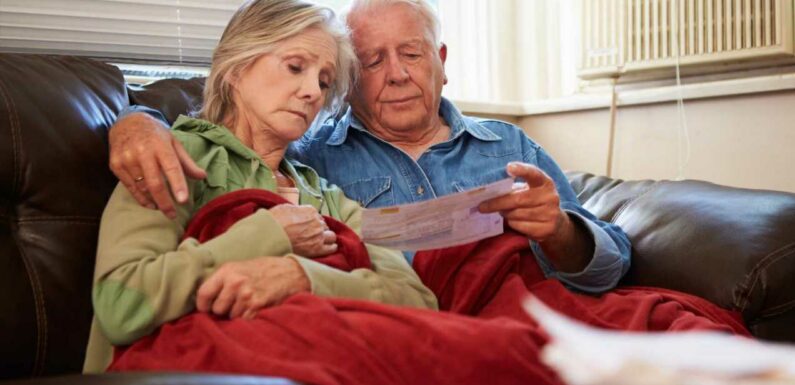
MILLIONS across the UK get financial support each month from Universal Credit – but these payments could be cut, and here are the top reasons why.
Universal Credit is a payment given to people on a low income or who are unemployed.
It comes from the Department for Work and Pensions.
The payment includes aid for housing costs, childcare, and financial support for people with disabilities, carers, and people too unwell to work.
The amount you can claim depends on your personal case, for example your living situation or employment status.
But these payments can sometimes be reduced, or even stopped altogether.
READ MORE IN MONEY
Thousands on Universal Credit to be impacted by major change this month
Parents on Universal Creditset to get more cash for childcare costs
The Mirror reported these are the five key reasons why.
Your earnings have increased
Since Universal Credit is determined by how much you earn, if your income increases, your monthly benefit could decrease.
For every £1 you earn your payment reduces by 55p – this is known as the "taper rate."
Once you earn enough, your Universal Credit claim will close, although you should be informed about this in advance.
Most read in News Money
Drivers warned as petrol prices could go up again – how to find cheap fuel
I live in the 'world's luckiest town' – I took home £370m & neighbours won big too
I'm an auction expert and these are the everyday items that are now worth £100s
The 20 best jobs in the UK for 2023 revealed – you could be paid up to £68,681
No need to worry though, if your circumstances change within six months of your last claim, you can reapply for this financial support.
Some can even earn more money while on Universal Credit due to the "work allowance," a set amount you can earn before your benefits are reduced.
To qualify for this, you must fit at least one of the following requirements:
- You are responsible for a child or young person
- You have a disability or health condition that affects your ability to work
Work allowance for those receiving housing cost support is £344 per month, or for those who don’t get help, £573.
You have reported a change in circumstances
It is important to report any changes that may have taken place in your work or personal life, as these may reduce – or increase – your payments.
If you don't report the change immediately or give false information, your claim could be reduced or stopped.
It is easy to report a change – simply sign into your Universal Credit account.
Changes to report affecting Universal Credit
- Finding or finishing a job
- Having a child
- Moving in with your partner
- Starting to care for a child or disabled person
- Changing your mobile number or email address
- Moving to a new address
- Changing your bank details
- Your rent going up or down
- Changes to your health condition
- Becoming too ill to work or meet your work coach
- Changes to your earnings (only if you’re self-employed)
- Changes to your savings, investments and how much money you have
- Changes to your immigration status, if you’re not a British citizen
You have had an overpayment
Sometimes the DWP has overpaid, so needs to deduct the money from your future payments.
It is important to tell the DWP if you have been paid too much – otherwise, you risk being prosecuted for benefit fraud or having to pay a penalty.
Easy to fix, though – just report an overpayment through your Universal Credit account, or call the Universal Credit helpline.
You have been sanctioned
To get your Universal Credit payments, you must accept a "claimant commitment" – a list of things you promise to do to get the payments.
You must agree to look for work if you aren't working already, or will increase your earnings if you are already working.
You can fulfill the requirements by recording your job searches or showing your Jobcentre work coach you are doing enough to get back into work.
If you do not satisfy the requirements, you may receive a sanction.
This means your Universal Credit payment will be temporarily reduced – you will be notified if it happens.
There are four levels for a sanction, and they can last from seven days up to a whopping 182 days.
You owe the DWP money from a loan
If you have taken out an advance payment, hardship payment, or budgeting advance, this will come out of your future Universal Credit payments.
These are all classified as loans, so will need to be paid back to the DWP.
Advance payment is money given to new claimants to help cover their bills while they wait for their application to go be accepted.
A budgeting advance is a one-off payment for things like home repairs.
A hardship payment is for those who have been sanctioned and are struggling with their lower Universal Credit payment.
The repayment timeline will depend on how much you borrowed.
So if your Universal Credit payment is lower than you expect, check out these five reasons to see if any of them apply to you.
Read More on The Sun
I’m 56 & hate wearing bras – people tell me I’m gorgeous so I free them
Simple button in your car could save you HUNDREDS in fuel – where to find it
The Sun wrote the Department for Work and Pensions (DWP) revealed the exact date millions of Brits on Universal Credit will start receiving a rise in their payment amounts.
Read more about Universal Credit payments and find out if you could be entitled to more financial support.
Source: Read Full Article









